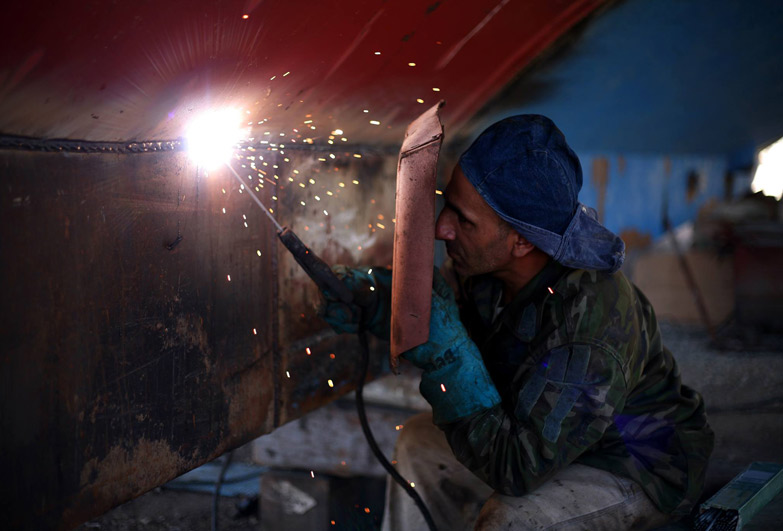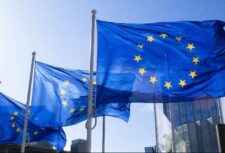Disclaimer: This article is more than 6 years old, and may not include the most up-to-date information or statistics. Please verify information with more recent sources as needed, and if you have any questions contact our Press Office.
Five questions answered by Louise Eldridge and Klara Skrivankova

6 April 2018
Anti-Slavery International first identified slavery in supply chains as a key issue over two decades ago. Today, the responsibility of business to respect human rights is widely recognised. But abuses are still happening in the supply chains of many products we use every day, from mobile phones, to clothes, food, cars and many others.
Anti-Slavery has recently started a project advocating for EU legislation addressing slavery in global supply chains of European companies. Here are five reasons this is important.
1. Why does slavery occur in supply chains?
Many of the root causes of slavery in global supply chains arise from the ways our economies are structured and regulated. A lot of business on the global stage is conducted in the context of poverty and a lack of decent work for people in many parts of the world, and exploitative working practices have become more tolerated and therefore more widespread.
In global supply chains – a sum of activities involved in the creation and sale of a product, often involving complex networks of subcontractors stretching across many countries – it is workers who bear the brunt of businesses’ drives for profits and cut production costs.
Voluntary business initiatives are to be applauded, however, we cannot rely on them to ensure workers’ rights are respected. National laws are often weak and fragmented, allowing some businesses to take competitive advantage through exploitation of their workers. This is why we need international legislation to level the playing field for those responsible businesses that do care about their workers.
2. Why do we need EU legislation on supply chains?
The EU is the world’s largest economic bloc, and its legislation could influence business practices across the world.
Protection of human rights is written into the EU’s constitution and it has already moved to combat abuses in some sectors such as garments, conflict minerals and palm oil. Some EU countries, such as France, the UK and the Netherlands have, or are in the process of, introducing legislation.
However, to redress the systemic problem of slavery requires supply chain regulation that will create a common standard for ALL businesses trading in the EU, whatever industry or country they operate in.
3. What regulation is needed?
Firstly, we need to oblige businesses to be transparent and publicly disclose the details of their supply chains, such as the origins of products and labour, and identify the risks of slavery in particular parts of the chain.
Secondly, we require businesses to take responsibility for the impact of their actions all the way down their supply chains and proactively tackle human rights violations. This is known as human rights due diligence.
For instance, this means looking at how a business’s buying decisions impact the wages of workers further down the supply chain, or how the use of subcontracting reduces control over working conditions of individual workers and making abusive practises much harder to monitor. Or it may mean looking at whether all workers in the supply chain have rights to negotiate with employers about their working conditions.
4. Do businesses support supply chain regulation?
It is a common misconception that businesses oppose any new regulation. Experience shows that regulation that aims to support fair competition wins business support.
For example, many businesses, including big well-known brands including Nestle, Heineken and ASOS, supported legislation on slavery and child labour due diligence in the Netherlands and Australia, and the transparency provisions in the UK Modern Slavery Act were a direct result of action by companies.
The regulation that we advocate for does not pose an additional burden on businesses that are already taking steps to combat slavery. And adding some burden on companies that undercut others by tolerating forced and child labour doesn’t strike us as unfair, but the opposite.
5. Why should we act now?
The momentum is growing: in September 2017 the European Parliament passed a resolution calling for corporate due diligence for companies operating within and outside the EU, and eight EU national parliaments have called for legislation at a European-wide level to harmonise rules and standards.
The EU has the potential to lead the way on tackling slavery in global supply chains and put in place regulation that will have the widest global impact.
European politicians can make it happen and businesses can do more, but as European citizens and consumers, we should act to show we are in support of such action.





